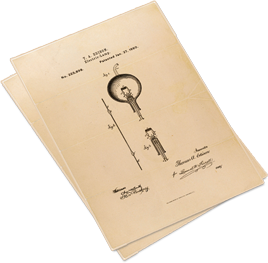The most important thing for you to do is to take action immediately.
As soon as you know or believe that your trade secret has been, or is about to be, improperly disclosed or used, you need to initiate an action to stop it. Call an attorney.
One important issue that arises when you have to bring legal action against someone who ran off with your trade secret, is the matter of venue. Where will the case be tried? Although the there is now a federal trade secret statute, it’s jurisdiction is expressly limited to the (mis)use of trade secrets in ways that cross state lines and international borders. So trade secret protection may still be a matter of state law, and in the absence of facts to the contrary, courts in the location (perhaps at the other end of the country) in which the misappropriated information is used will likely have jurisdiction over the thief, and you would have to go that state for relief, where the laws of that state will apply. This can be prevented by written confidentiality agreements.
Agreements also preclude defenses based on inadvertent or unwitting disclosure. In most states, if it can be shown that the unauthorized disclosure or misappropriation was intentional, or even that the person involved ought to have known not to reveal or use the secret, then punitive damages as a multiple of, or in addition to, actual damages may be claimed.
In order to claim any damages, though, you need to be able to show how and to what extent you were damaged. A secret that has no demonstrable economic value is, by definition, not a trade secret, and you can’t collect anything for damages you didn’t or won’t suffer. So, documentation of the actual value of a trade secret is essential to protecting it. While this can be done to some extent after the fact, it is much easier, and it makes a much more credible presentation, to document this aspect of your trade secret by making records and keeping related documentation as you go.
Finally, injunction preventing another’s illicit use of your trade secret during the time your claims are before the courts is the most effective way to limit both your short-term economic damage and the possibility that your trade secret will be further spread among your competitors. The more you have properly documented your secret and its value, and acted to protect it, the better are your chances of obtaining injunctive relief.
Trade secrets do not prevent someone from independently, by his or her own work, discovering and then using the same process, ingredient, and so forth that you discovered. For that reason, when patent protection may be possible, despite its limitation in time and the expense of obtaining it, you should carefully consider the patent option.


